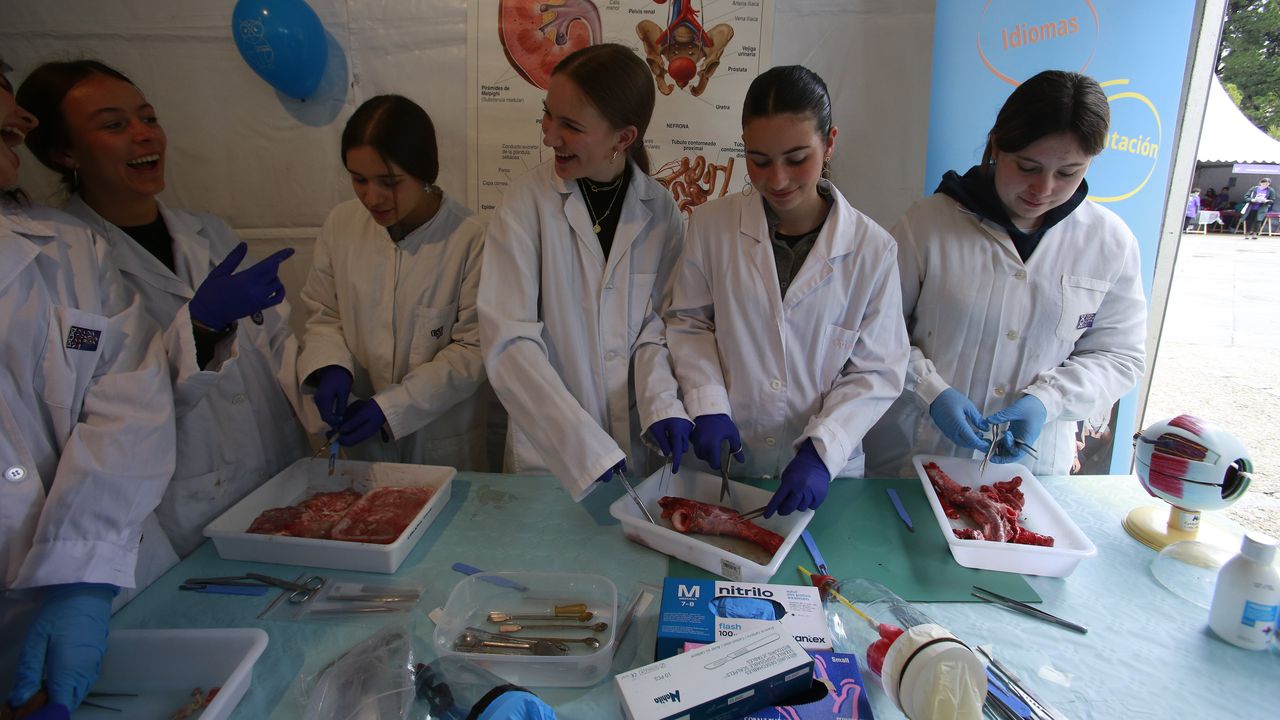Spanish psychoanalyst José María Alvarez, co-founder of the “Other Psychiatry” movement, who will visit Argentina in November to offer free treatment, warned that a psychiatric diagnosis “can define a person’s life” and that its abuse “is stigmatizing and can be harmful.” “. And an open conference at the Scientific Cultural Center (C3) for the community on this topic, among other activities.
Originally from the Spanish city of Valladolid, Alvarez holds a doctorate in psychology from the Autonomous University of Barcelona and is a clinical psychologist at the Rio Hortega University Hospital in Valladolid.
Tailam (T): How did the idea of coming to Buenos Aires come about?
Jose Maria Alvarez (JMA): In the hospital where I work, we receive a large number of residents from Argentina, among other countries, and I go every year because we also have collaborations, hold conferences and even manage the collections of books that we publish in our hands colleagues from both Spain and Argentina, such as the psychiatrists Emilio Facchetto and Gustavo Lebovitzky who also represent the other spearhead of psychiatry in Buenos Aires.
T: How do you define the perspective of other psychiatry?
Jamma: It is a very human perspective that seeks to understand the patient. We see madness as a means of defense and its symptoms as an attempt to restore balance to the disaster that is madness. We work every day with patients with very serious conditions and speak from clinical experience. We try to move them forward by doing spoken psychotherapy. This does not mean not using medications or not using a community approach either.
“Mental health, since the advent of modern psychiatry, has three pillars: a biomedical pillar, a psychological pillar, and a social pillar.”
T: How did this movement come about?
Jamma: It began as a group of friends who met for 25 years at annual mental health conferences to talk about insanity and schizophrenia, topics of interest to us as psychoanalysts working in mental health institutions and now as a stream of opinion within the mental clinic that gained resonance in the world, we held huge conferences. In Europe, psychoanalysts only work in private consultations, and do not work in hospitals as is common in Argentina, but here there is a small group of psychoanalysts, psychologists and psychiatrists working in the “public” who also train future specialists in psychiatry and psychiatry. . in clinical psychology.
T: Are there differences with classical psychiatry?
Jamma: Since the beginning of modern psychiatry, mental health has had three pillars: a biomedical pillar, a psychological pillar, and a social pillar. Depending on the periods, one dominates the other. The model that dominates at a certain moment dries up and other models must take over, because nothing here wins definitively. The important thing is not that one thing is better than another, but that patient care should be subject to clinical standards, which means that each patient should be given what works best for them at that moment. What goes well is not what is socially thought to be going well, because it is not good for everyone to be around because they become too paranoid, for example. Not everyone copes well with psychotherapy or medications. To each their own, and it is this “thing” that is so complex about our profession.
“We see madness as a defense and its symptoms an attempt to restore balance to the catastrophe that is madness. We work every day with patients in very serious cases and we speak from clinical experience. We try to bring them through a spoken procedure, a psychotherapy.”
Q: What does good diagnostic use mean?
JMAA psychopathological diagnosis means that in some cases it will completely determine a person’s life. If you diagnose someone with “schizoid psychosis,” the most likely thing is that this person will immediately retire from their job, or will receive a lifetime pension, or that if a family member doesn’t want to see their grandchildren, they will. He will use this diagnosis and label this person as “crazy” and unable to do certain things. Misdiagnosis can be extremely harmful and lead to stigma and marginalization. For two centuries, through psychopathological observation of patients, it has been possible to isolate psychological features or clinical types and, for example, a volatile paranoid, if the diagnosis of clinical structure is correct, will behave accordingly. Classically understood as skeptical paranoia. But there is another diagnosis, which is more intimate. If we could diagnose a person, and it works just for that person, it would give us the key to what could be the essence, the most private and subjective. If we can make a diagnosis of these two types (clinical and intimate), we will have a great diagnosis, because we will know many things about this patient.
Lecture in C3
The conference “Diagnostics and its Good Uses”, with free admission, will be held on Monday, November 6 at 7 pm at the Cultural Center of Science, located at Godoy Cruz 2270. Registration is required by filling out the following form.
In addition, on Saturday, November 4, the book “Psychopathology Vocabulary” will be presented to students, professionals and other mental health professionals at 10:30 at the headquarters of the non-governmental mental health assistance and rehabilitation organization, Proyecto Soma. , located at Guemes 4130, also in Buenos Aires. Registration for this activity is through this form.






